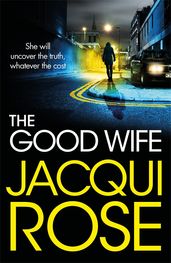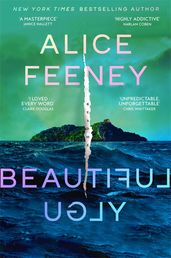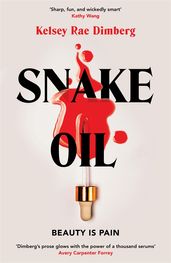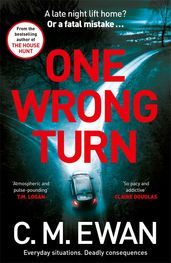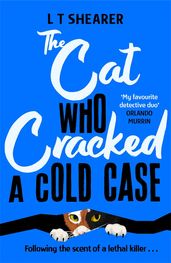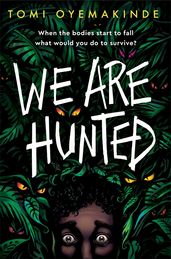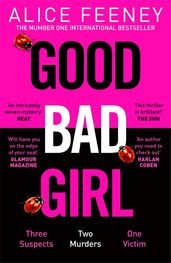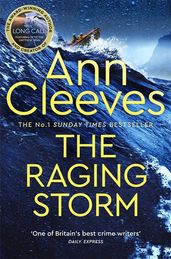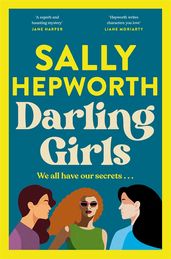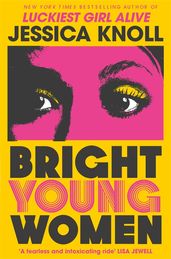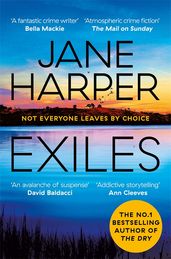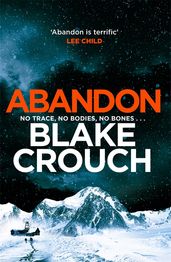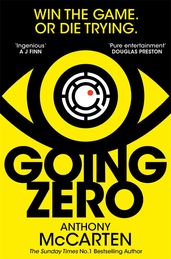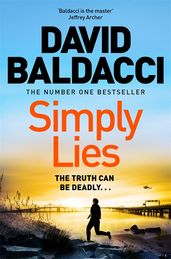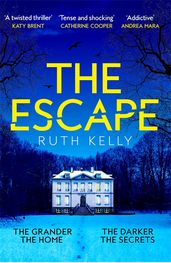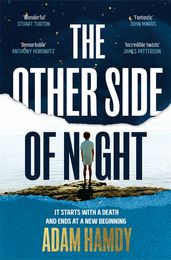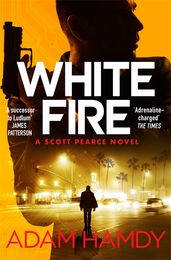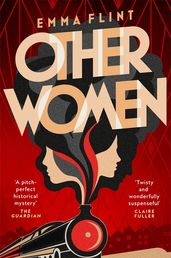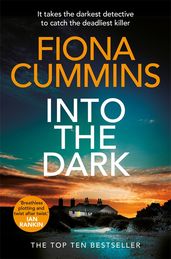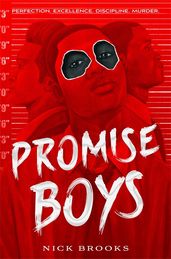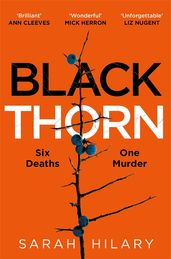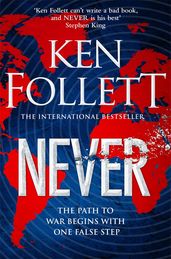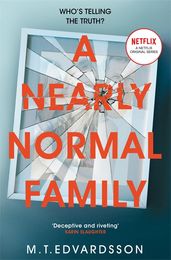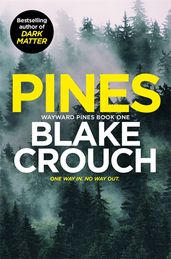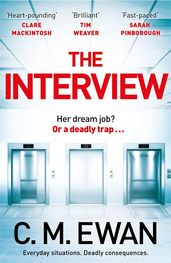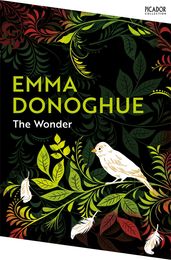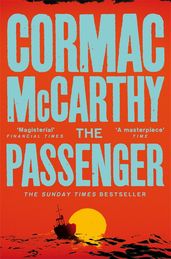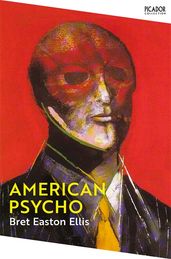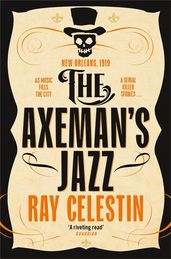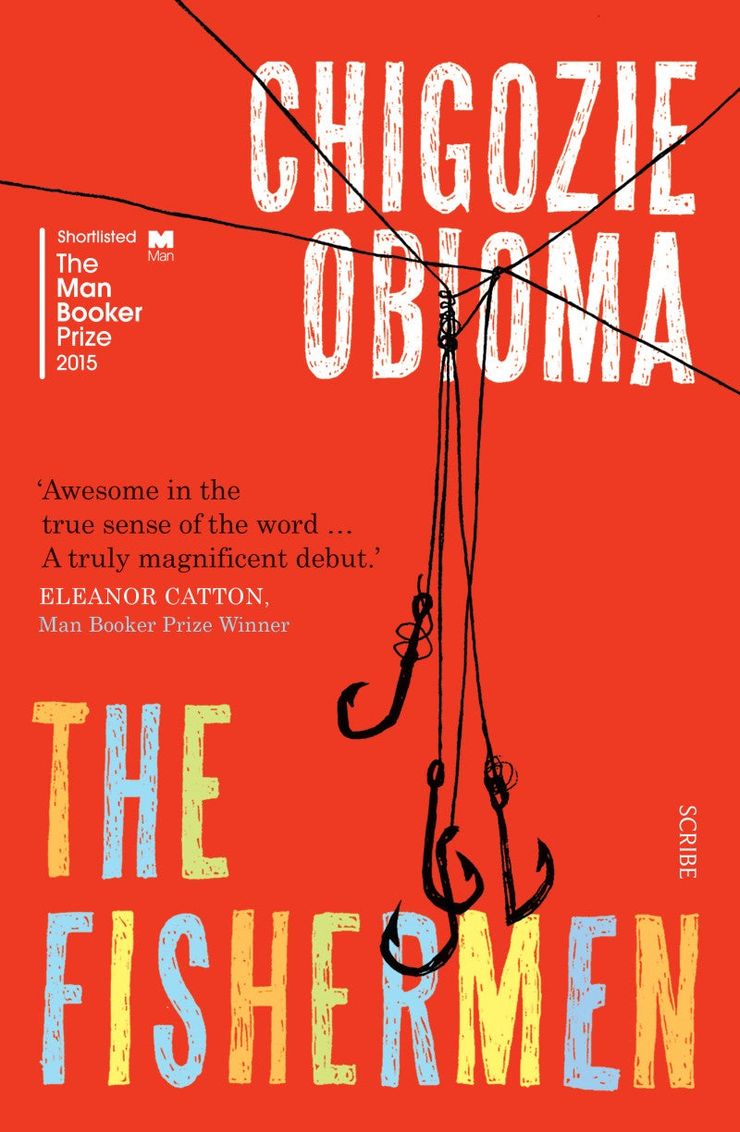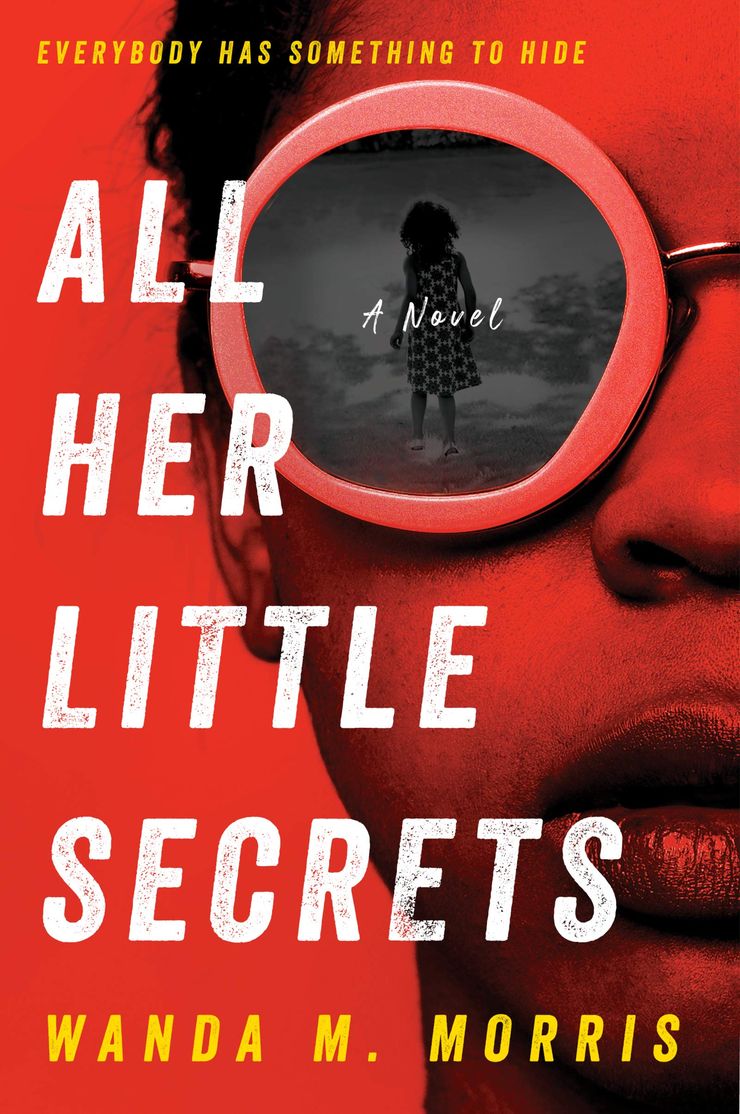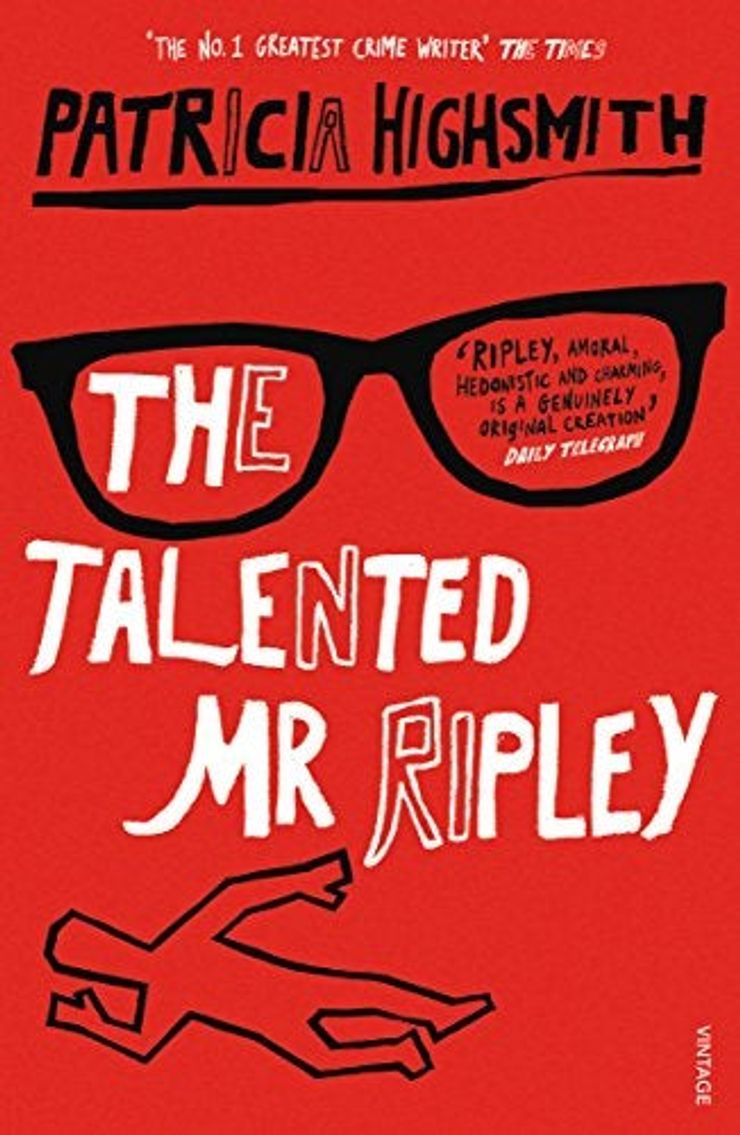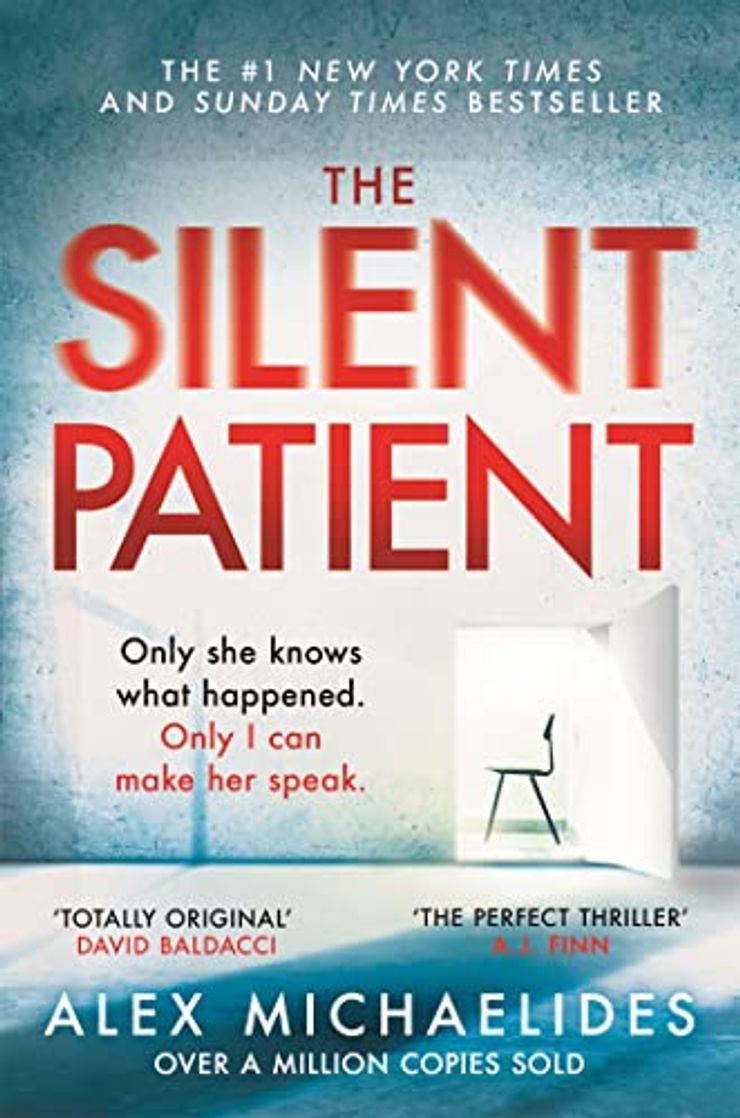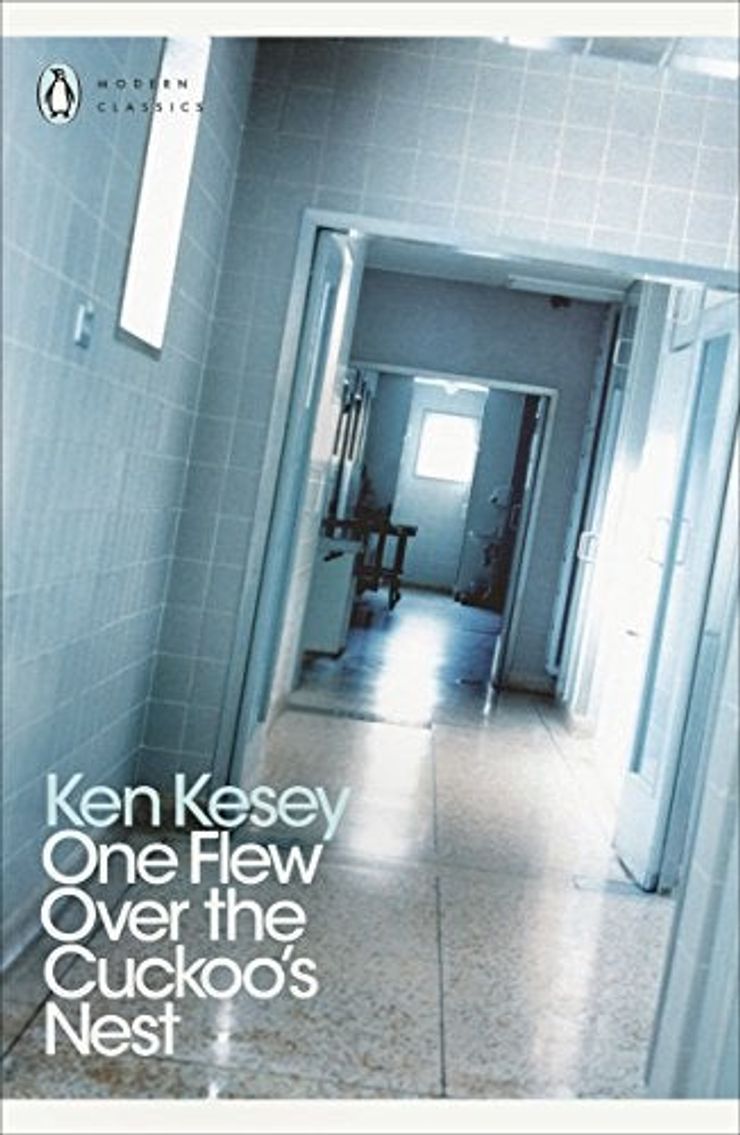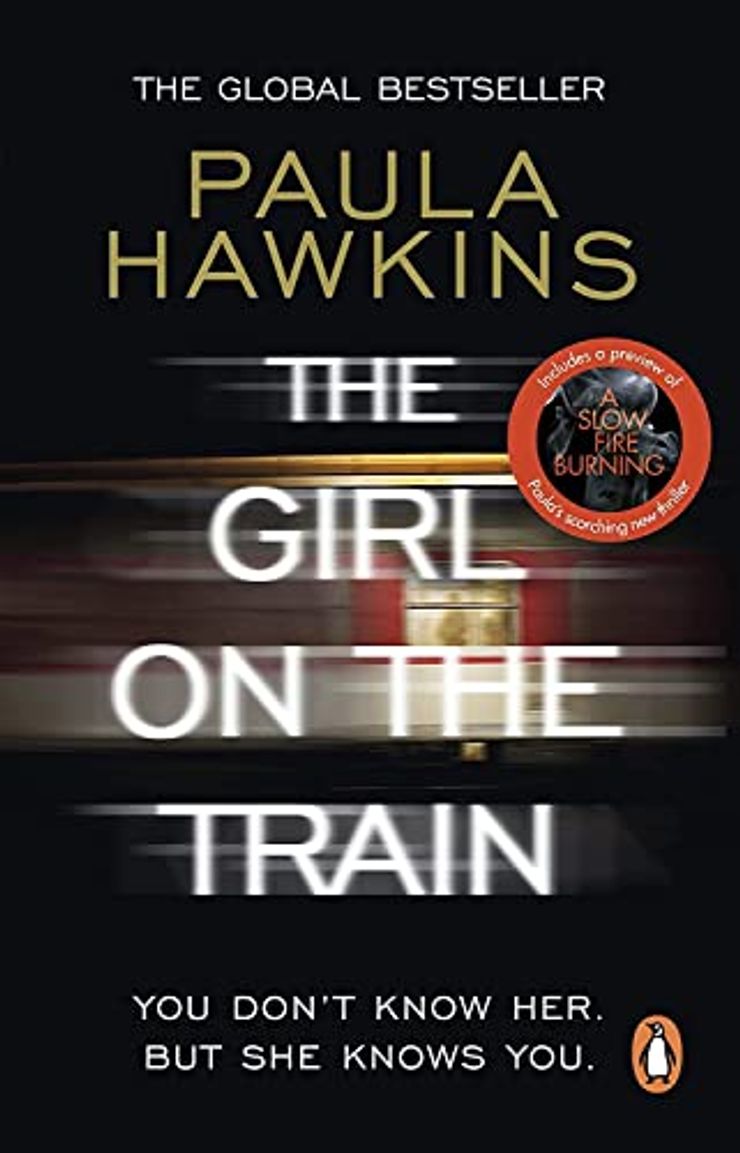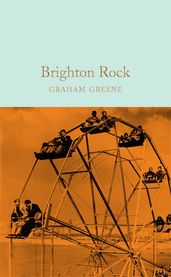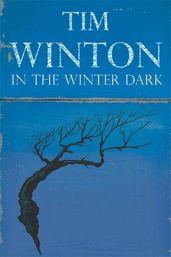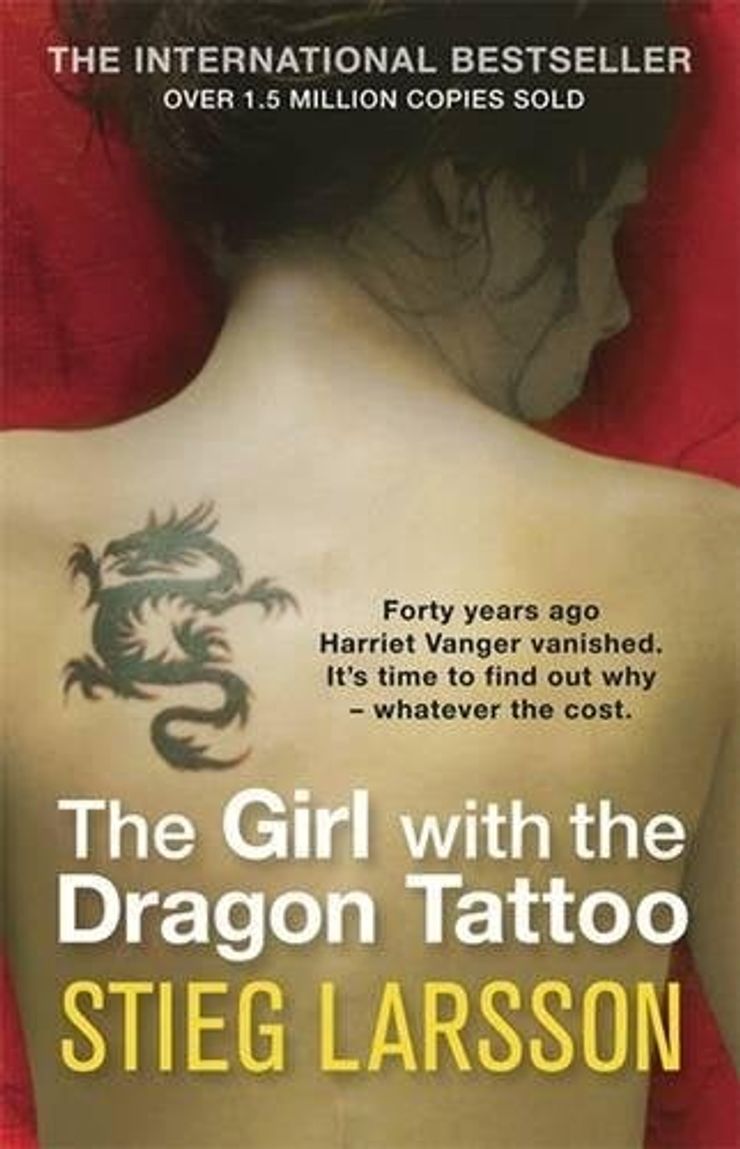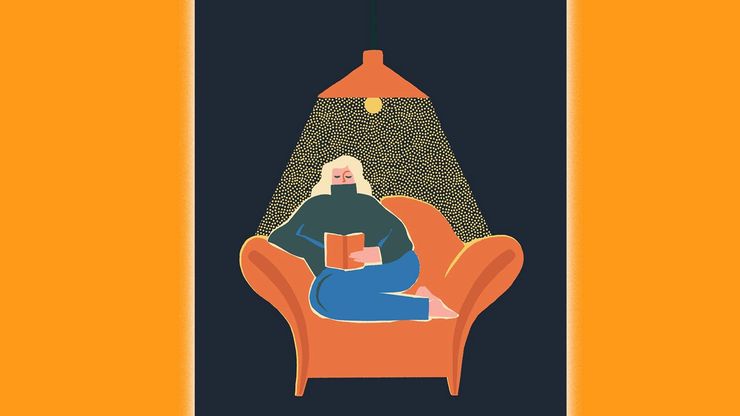The best thriller books of 2025, and all time
We curate our edit of the best new thriller books of 2025, take a look back at the best thriller books of 2024 and share our top thriller books of all time.

Whether you're a connoisseur of the latest releases or seeking to uncover hidden gems from the past, we've curated a collection that promises to immerse you in a world of unrelenting excitement. Prepare for sleepless nights as we unveil the thrilling tales that have left an indelible mark on the genre.
For more inspiration, discover our selection of the best crime fiction here.
The best new thriller books of 2025
White King
by Juan Gómez-Jurado
The thrilling conclusion to Juan Gómez-Jurado’s internationally bestselling Antonia Scott trilogy, now a major TV series. Antonia Scott has an unusually gifted forensic mind. She’s the lynchpin of a top-secret project, Red Queen, created to work across borders to solve the most devious and dangerous crimes, those that are beyond the skills of the regular police. But the Red Queen project is under attack on all fronts. Across Europe, its agents are murdering each other, and long-resolved cases from the past are rearing their deadly heads again. And at the centre of it all is the mysterious and dangerous Mr White.
Catch up with the series
The Good Wife
by Jacqui Rose
Psychologist Ava Barclay wants to be a good wife. The wife that she knows her cop husband, Tony, deserves. But she's keeping a lot of secrets: drinking too much, making bad choices and numbing her pain with one-night stands. Then her father is attacked and left for dead. The resulting police investigation reveals that he isn't who he says he is, and with Tony on the force, this is a secret Ava isn't able to keep. She must now head into the dark streets of Soho and into a seedy world of hate, fear and mistrust if she is to find the truth about her father, and her family.
Famous
by Blake Crouch
Lance is by public consensus a bit of a loser. He's thirty-eight. Lives above his parents' garage. Has a dead-end job. He is also the spitting image of Oscar-winning movie star, James Jansen. For the last ten years Lance has saved up, watched all the films, studied Jansen's speech and now, at last, he is ready to go after his dream. . .
Beautiful Ugly
by Alice Feeney
One year ago, Grady Green's wife disappeared. He called her with some exciting news, she answered while driving, braked suddenly, then nothing. Her car is eventually found by a cliff edge, headlights on, door open, her phone still inside. But she has gone. Still overcome with grief and unable to move on, Grady takes himself to a remote Scottish island to try and get himself back together. And it's there he sees her: a woman who looks exactly like his missing wife.
Snake Oil
by Kelsey Rae Dimberg
It’s a woman’s world, isn’t it? Rhoda West seems to have the world at her feet. She's an increasingly successful CEO of a wellness start-up, striving for billion-dollar unicorn status and to #bebetter. Then an anonymous social media account starts revealing company secrets. Is Rhoda for real, or an exploitative fraud? And how will she go to protect her reputation?
The best thriller books of 2024
Run
by Blake Crouch
When reports emerge of a series of strange and seemingly random murders, the whole nation is glued to the news for the latest updates. The next day, more victims are found, and the number of those slain increases tenfold. Each morning, people wake up to new horrors, and the President calls for calm – until the power goes out and the country is plunged into a state of darkness. Who will be the next victim? A chilling thriller, Run is the new novel by Blake Crouch, the bestselling author of Dark Matter.
One Wrong Turn
by C. M. Ewan
When Ben and Abi come across a family with a young baby stranded, their car seemingly broken down on a deserted country lane on a foggy night, the pair are compelled to stop. Anyone would, right? Offering the stranded trio a lift, Ben and Abi soon realise their fatal mistake and find themselves in greater danger than they could have ever fathomed. A compelling thriller, One Wrong Turn is the newest release from bestselling author C. M. Ewan.
The Dark Wives
by Ann Cleeves
Vera Stanhope is back in The Dark Wives, the eleventh novel in Ann Cleeves’s beloved and best-selling crime series. When the body of a care worker at a home for troubled teenagers is found and a fourteen-year-old resident, Chloe, is reported missing, Stanhope and her team are called in to investigate. After another body is discovered at the ancient Three Dark Wives standing stones, deep in the heart of the countryside, Vera realises she must find Chloe and sort between what is fact and what is folklore to apprehend the killer.
Sharp Glass
by Sarah Hilary
One woman, trapped and alone miles from anyone who can hear her cries for help, is forced to find her own way to escape and get out alive from the remote farmhouse she wakes up in. When she meets her captor, a man who is convinced she knows why a young girl was murdered decades before, she must decide whether her secret is worth keeping more than her life is worth saving. With fans including Ann Cleeves, Marian Keyes, and Erin Kelly, Sharp Glass, the new thriller from Sarah Hilary, is a must-add to your reading list.
Whispers of the Dead
by Lin Anderson
When a famous film star vanishes from the streets of Glasgow, the whole city is gripped by the search for the missing celebrity. Meanwhile, on the other side of the city, Rhona MacLeod examines a man found murdered with an unusual engraved bullet lodged in his stomach. As clues unravel, police start to ask: are the two cases connected? Find out in Whispers of the Dead, a grisly gangland thriller from bestselling author Lin Anderson.
The Cat Who Cracked a Cold Case
by L T Shearer
Crimefighting cat Conrad is back in The Cat Who Cracked a Cold Case, the third novel in L T Shearer’s charming cosy crime series. As she embarks on a journey through Britain’s winding canals on her narrowboat to visit an old friend in Manchester, with her extraordinary (talking!) cat Conrad in tow, the thought of fighting crime is the last thing on retired police detective Lulu’s mind. But, when she finds an old news report about a series of murders that sound uncannily similar to a case she investigated in London, Lulu and Conrad know they must use their skills to help police bring the killer to justice.
One of the Good Guys
by Araminta Hall
Cole, considered the 'perfect husband,' is left shocked when his wife, Mel, leaves him. Seeking isolation, he moves to the coast and befriends Lennie, an artist leading a similar solitary existence in a precarious cliff-edge cottage. However, their lives are upended when two young women vanish after protesting gendered violence near their homes. Now at the centre of a police investigation and media storm, it becomes clear that Cole and Lennie may not know each other as well as they assumed.
We Are Hunted
by Tomi Oyemakinde
Joining their father for a business trip on a top-secret island, Femi and his brother can’t wait for a summer like no other. With amazing technology and unusual, never-before-seen animals, the brothers are enchanted by the island and its charismatic curator, Richard Jenkins. But, as they spend more time on its shores, the pair realise that the island holds horrific secrets and that they’re in greater danger than they could ever have imagined. From the author of The Changing Man, Tomi Oyemakinde, We Are Hunted is a tense horror-thriller that you won’t be able to put down.
Every Time I Go on Vacation, Someone Dies
by Catherine Mack
Ten days. Eight suspects. Six cities. Five authors. Three bodies. One trip to die for. Protagonist Eleanor Dash, famous for penning the Vacation Mysteries series, suddenly becomes the chief investigator in a real-life murder mystery during her book tour in the serene Amalfi Coast. With her ex-boyfriend's death, a string of literary rivals come under suspicion, creating an atmosphere thick with uncertainty and dread. Part The White Lotus, part Only Murders in the Building, Catherine Mack's first book in this new series provides a suspenseful adventure that you won’t be able to put down.
Good Bad Girl
by Alice Feeney
In a tale of intertwining crimes, a baby's abduction two decades ago connects to a murder in a care home. Unravelling the truth rests on the shoulders of a complex yet intriguing character, the 'good bad girl.' Edith, determined to escape her nursing home, forms a bond with Patience, a caretaker harbouring secrets. Meanwhile, Edith's daughter Clio remains distant, and a looming presence approaches Clio's doorstep with ill intentions. With mistrust brewing, the women must navigate a web of suspects, murders, and a singular victim, unearthing the fates of the vanished baby, the grieving mother, and the ties that bind them all.
The Raging Storm
by Ann Cleeves
The Raging Storm is the next intricate mystery in the Two Rivers series featuring Detective Matthew Venn. In the quaint coastal town of Greystone, Devon, the arrival and vanishing of sailor and local celebrity, Jem Rosco, is met with little surprise — that’s the sort of man he is. Then, his body is discovered floating off the legendary Scully Cove amid a vicious storm. As the elements rage and the town gets cut off, Venn battles past connections and superstitions within the community. As the stormy winds howl, Venn and his team unspool a dangerous web of crime, unprepared for the perils that await.
The Final Hours of Muriel Hinchcliffe M.B.E
by Claire Parkin
Harnessing the intricate dynamics of friendship and the echoes of the past, The Final Hours of Muriel Hinchcliffe M.B.E is a compelling story of two inseparable friends: Muriel and Ruth, a successful romantic novelist and a dedicated journalist respectively. Life has now brought them together under one roof in North London; they fill their days with Scrabble games, and bickering, all while Ruth cares for the deteriorating Muriel. Their monotony breaks, however, when Muriel makes a shocking announcement that tumbles Ruth's world into chaos. Only one thing is certain – life, as Ruth knows it, will never be the same again . . .
Darling Girls
by Sally Hepworth
Jessica, Norah, and Alicia are foster sisters. Rescued from their own family tragedies and raised on a picturesque farming estate, they have always been deemed fortunate for their second shot at family life. But beneath their idyllic childhood lies a darker tale. The unexpected discovery of a body under their childhood home thrusts the sisters into an unexpected whirlpool of investigation, not as innocent victims, but as potential murder suspects. With their return to the estate as adults, they must face the haunting skeletons of their past. Full of dark humour and tantalising plot twists, Darling Girls is an unputdownable page-turner.
Death on the Lusitania
by R. L. Graham
Set on the RMS Lusitania's final journey in 1915, Patrick Gallagher, a government civil servant, escorts a British diplomat back to England. But after a passenger, secluded in a locked cabin, is believed to have killed himself with a missing firearm, Gallagher is requested to investigate. Was it suicide or a meticulously planned murder? Gallagher believes one of the passengers is a deadly killer who could strike again to protect their true reasons for being on board. And all the while, the ship sails on towards Europe, where deadly submarines patrol dark waters.
Bright Young Women
by Jessica Knoll
Pamela Schumacher’s life changed forever on the night her sorority sisters fell victim to America’s most deadly serial killer as she slept metres away in their Tallahassee house. Vowing to find the perpetrator, Pamela joins forces with Tina Cannon, a woman who believes the same man abducted her friend in broad daylight. As the women get closer to unveiling the killer’s identity, they forge a friendship and find themselves in more danger than they imagined. Inspired by a true story, the new thriller from the author of Netflix-hit Luckiest Girl Alive, Bright Young Women is a must-read this autumn.
The Family Experiment

The world's population is soaring, creating overcrowded cities and an economic crisis. A growing number of people can no longer afford to start or raise a family. But for those desperate to experience parenthood, there is an alternative: a monthly subscription fee whereby clients can create a virtual child. To launch this new initiative, the company behind Virtual Children has created a reality TV show. The prize: the right to keep their virtual child or risk it all for the chance of a real baby. Set in the same universe as The One and The Marriage Act, The Family Experiment is a dark and twisted thriller.
One of Us is Dead
by Peter James
James Taylor can’t believe his eyes when sitting six rows in front of him at a funeral, he sees a man he delivered the eulogy for two years previously – a childhood friend he thought was long buried. Is Rufus Rorke alive? And where has he been all this time? Across the city, as he investigates a series of suspicious and seemingly connected deaths, DSI Roy Grace finds himself racing against the clock to find Rorke and stop anyone else from becoming a victim. The newest novel in Peter James’s long-running crime series, One of Us is Dead will leave you guessing until its thrilling end.
The best thriller books of all time
Exiles
by Jane Harper
Critically acclaimed author Jane Harper returns with Exiles, securing her place as the trailblazer of the 'outback noir' genre. After Kim Gillespie disappears from a busy festival, leaving her baby alone in the pram, her absence casts a long shadow over her friends and loved ones. A year later, Kim's loved ones gather to welcome a new addition to the family. Among them is Aaron Falk, a federal investigator, who soon becomes suspicious about Kim's case. As long-held resentments and secrets are exposed, Falk will have to tread carefully to get to the truth . . .
Abandon
by Blake Crouch
This standalone thriller from bestselling author, Blake Crouch, follows Abigail Foster and her father and they seek to uncover the truth about the disappearance of an entire mining town in 1893. Exploring the area, they are joined by two backcountry guides: a psychic and a paranormal photographer. The long-abandoned town is, accoring to rumour, haunted. But Abigail and her companions are about to learn that the town’s ghosts are the least of their worries. Twenty miles from civilization, with a blizzard bearing down, they realize they are not alone.
The House Hunt
by C. M. Ewan
The House Hunt is a heart-pounding, claustrophobic thriller from C. M. Ewan, acclaimed author of The Interview. Your estate agent calls – she’s running late and needs you to show a man around your home. You let him in and begin the tour. Soon, something about him feels wrong so you ask him to leave – but he refuses. Then he tells you something about you. Something inconceivable. And then you realize he doesn't want your house, he wants you. This is the latest unputdownable read from the master of cat-and-mouse thrillers.
Going Zero
by Anthony McCarten
This high-concept conspiracy thriller comes from Oscar-nominated screenwriter Anthony McCarten. In order to test out a new piece of spyware, FUSION, on behalf of the CIA, ten people are given two hours to vanish, and stay vanished, for thirty days. Anyone who beats FUSION gets $3million. If everyone is captured, tech-wunderkind Cy Baxter gets a massive contract. But for one contestant, the stakes are much higher than money. . .
Manner of Death
by Robin Cook
Reeling from a devastating encounter that nearly ended his life, Jack Stapleton is still in recovery. His wife Laurie Montgomery, New York’s chief medical examiner, is left to manage a difficult situation at home and an even tougher one at work. When a young man appears on the medical examiner’s table, an apparent death by suicide, Laurie is compelled to try and understand what happened. The autopsy reveals the disturbing possibility that foul play was involved and provides many more questions than answers. And so Laurie ignores her own professional rules to understand who might want the man dead, and why.
The Marriage Act
by John Marrs
From the author of The One, now an eight-part Netflix series, John Marrs' The Marriage Act brings us a dystopian thriller packed full of twists. Set in Britain in the near future, a right-wing government believes the answer to society's ills is the Sanctity of Marriage Act, where marriage is the expectation and single citizens are shunned. To ensure compliance, the government must keep a watchful eye over every aspect of couples' personal lives. But four couples are about to discover just how challenging relationships can be when someone else is always watching.
The Wild Coast
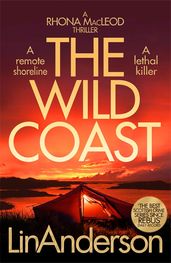
A remote shoreline. A lethal killer. Forensic scientist Rhona MacLeod faces a disturbing case when she encounters a shallow grave on Scotland's west coast adorned with a stickman made of twigs in the victim's mouth. Rhona realises a predator is targeting wild campers as another young woman goes missing from a nearby campsite, with a similar sinister figurine discovered in her van. An idyllic coastline known for providing peace and serenity, now the area is a hunting ground. With a young woman's life hanging in the balance, time is running out, and Rhona must unravel the truth amidst personal and professional turmoil.
Simply Lies
by David Baldacci
Simply Lies is the latest thriller from David Baldacci, featuring Mickey Gibson, a former New Jersey detective and single mother of two. She also works for global investigation company, ProEye, to track down assets of the wealthy who have tried to avoid their creditors. One day she gets a call from a colleague, asking her to visit the home of a notorious arms dealer who has cheated some of ProEye’s clients in the past. Mickey arrives at the mansion to discover the body of a man hidden in a secret room and soon discovers that nothing is at it seems . . .
The Escape
by Ruth Kelly
When struggling influencer couple Adele and Jack post a crowdfunding video online, they’re amazed when a mysterious benefactor offers to buy them a crumbling French chateau. It’s the lifeline they need to leave all their troubles behind. For Adele, it’s a dream come true. She will post videos of the renovation as thousands of online subscribers follow their journey. But the chateau is not all it seems and the local community is far from welcoming. And then the couple disappear, leaving Adele's sister, Erin, to unravel the shocking truth behind the their disappearance.
The Woman Inside
by M. T. Edvardsson
A breathless page-turner from an international master of suspense, this is a story about dependency, justice, and the sometimes fine line between right and wrong. Bill is in a financial mess with bills to pay when he rents out a room in his apartment to Karla. Karla left home to study law and to earn some money begins working as a cleaner for Steven and Regina Rytter. Jennica meets Steven on Tinder, but it soon becomes clear that Steven is hiding secrets of his own. By the end of the summer, there have been two murders, but who holds the secret to the truth?
The Other Side of Night
by Adam Hamdy
David Asha wants to tell you a story about three people. Elliott Asha, his son, broken by a loss that will redeem him. Ben Elmys, a surrogate father and David’s trusted friend, a man who might also be a murderer. Harriet Kealty, a retired detective searching for answers to three mysterious deaths, while also investigating a man who might turn out to be the love of her life. Every word David tells you is true, but you will think it fiction . . .
White Fire
by Adam Hamdy
Scott Pearce has torn up the espionage rulebook to overcome those spreading division and hate, but radical environmental group White Fire is a new kind of enemy posing a new kind of threat. With everything on the line, Pearce discovers links to an old enemy thought long defeated, and as the danger rises, he realises he and his team, Leila Nahum and Kyle Wollerton, have underestimated the fight ahead. As the conspiracy that links Black 13 and Red Wolves emerges from the shadows, the team has one chance to avert a global catastrophe that could disable the world permanently . . .
‘Ever inventive, ever surprising, Hamdy is fast carving a name as one of the most intelligent and gripping thriller writers of our time.’
Peter James
The Club
by Ellery Lloyd
The grand opening of Island Home – a forgotten island transformed into the height of luxury – is set to be the celebrity event of the decade. But as the first guests arrive, the weekend soon proves deadly – because it turns out that even the most beautiful people can keep the ugliest secrets and, in a world where reputation is everything, they'll do anything to keep it. The Club is an exhilarating, addictive read, telling a story of ambition, excess, and what happens when people who have everything – or nothing – to lose are pushed to their limit.
Other Women
by Emma Flint
Six years after the end of the Great War, a nation is still in mourning. Among them is Beatrice Cade – an orphan, unmarried and childless. Taking a room in a Bloomsbury ladies' club and a job in the city, Bea is determined to carve out a more fulfilling life as single woman, but this independence is soon destroyed when she falls in love for the first time. Meanwhile, Kate Ryan lives her idyllic life with her handsome husband and daughter. That is until one morning, two policemen knock on her door and threaten to destroy the façade Kate has created. Emma Flint's Other Women promises a story of fantasy, obsession and murder.
Into the Dark
by Fiona Cummins
The kettle is still warm, all the family’s phones are charging on the worktop, but the house is deserted. In fifteen-year-old Riva Holden’s bedroom, scrawled across the mirror in blood, are three words: Make Them Stop. In a gorgeous Art Deco home looking out to the bay of Midtown-on-Sea, a terrible crime has come to light. An entire family – Piper and Gray and their two teenage children – has vanished. Cue the arrival of DS Saul Anguish, a brilliant detective with a difficult past. As he begins to untangle the painful story of the disappearance, he must face his own demons.
Promise Boys
by Nick Brooks
Nick Brooks's Promise Boys is a trailblazing, blockbuster YA mystery about three teen boys of colour who must investigate their principal’s murder to clear their own names. When Principal Moore, headteacher at the Urban Promise Prep School is murdered, J.B., Ramón and Trey emerge as the case's prime suspects. With all three maintaining their innocence, they must track down the real killer before they are arrested. This YA thriller shines a glaring light on how the system, condemns Black and Latinx teen boys to failure before they've even had a chance at success.
Black Thorn
by Sarah Hilary
Sarah Hilary's compulsive psychological thriller will have you questioning how much you know about the people who live next to you . . . An exclusive new housing development, Blackthorn Ashes, is the new home for six families hoping for a peaceful life on the cliffs overlooking the Cornish sea. But six weeks later, paradise is lost. Six people are dead. One of its surviving residents, Agnes Gale, is determined to find out the truth about what happened. Even if that truth is deadlier than she could have ever believed possible.
Never
by Ken Follett
Bestselling thriller writer Ken Follett is back after over a decade, with a compelling novel featuring a stolen army drone, a hidden stash of highly toxic chemicals, a genius Chinese spymaster and a US president with a populist rival hot on his heels. Never is a terrifying look at how international and diplomatic peacetime is only a few missteps away from a chain reaction of catastrophic consequences, with only three very different protagonists able to prevent disaster by working in the shadows.
A Nearly Normal Family
by M. T. Edvardsson
Now a Netflix original series, A Nearly Normal Family is the stunning psychological thriller, which asks what would a parent do if their child was suspected of murder, and just how far they’d go to protect them. One night, eighteen-year-old Stella comes home late. The next morning she is accused of murder. As parents Adam and Ulrika deal with the fallout and try to protect their daughter, they must search out the truth – but how much do they really know about their daughter? Told from three viewpoints – father, mother and daughter – but who is telling the truth?
Pines
by Blake Crouch
The first book of the smash-hit Wayward Pines trilogy. Secret Service agent Ethan Burke arrives in Wayward Pines, Idaho, with a mission: locate two federal agents who went missing a month earlier. But within minutes of his arrival, Ethan is involved in a violent accident. He comes to in a hospital, with no ID, no cell phone, and no briefcase. As the days pass, Ethan’s investigation turns up more questions than answers: Why can’t he get any phone calls through to his wife and son in the outside world? Why doesn’t anyone believe he is who he says he is? And what is the purpose of the electrified fences surrounding the town? Are they meant to keep the residents in? Or something else out?
The Interview
by C. M. Ewan
It is Friday, 5 p.m. You're being interviewed for the job you always wanted, in an office thirteen floors above the city. There's nobody else around but you and the interviewer, and their questions are getting stranger and more unsettling. Your fear is rising, and the only route out is to answer a seemingly impossible question. This nail-biting novel comes from bestselling mystery and thriller author C. M. Ewan.
‘A terrifying, heart-stopping ride and a highly original and deeply disturbing thriller. I've been a Chris Ewan fan for a while, but in this book he soars to another level entirely.’
Sharon Bolton on The Interview
The Wonder
by Emma Donoghue
The eleven-year-old girl who has stopped eating, but seems remarkably fine. The nurse sent to see if she’s a fraud. The journalist, on the hunt for a story. Are they experiencing a miracle, or is a child being murdered in slow motion in front of their eyes? Now a Netflix Original film, this novel by the bestselling author of Room, is a compulsive, psychologically complex read.
The Passenger
by Cormac McCarthy
1980, Mississippi: A sunken jet. Nine passengers. A missing body. The Passenger is the story of a salvage diver, haunted by loss, afraid of the watery deep, pursued for a conspiracy beyond his understanding, and longing for a death he cannot reconcile with God. Traversing the American South, from the bars of New Orleans to an abandoned oil rig off the Florida coast, The Passenger is a breathtaking novel of morality and science, the legacy of sin, and the madness that is human consciousness. The Passenger is followed by Stella Maris – both are too good to be missed.
American Psycho
by Bret Easton Ellis
On the surface, Patrick Bateman is living the dream: a job as a stockbroker, dinner dates every night at the latest restaurant in town, a string of admirers. But behind the pristine façade lurks a psychopath. It's hard to know which element of Patrick's increasingly sadistic murderous rampage around New York is the most horrifying. The explicit violence. The unsettling feeling of not being entirely sure what's real and what's imagined. The void at the heart of our nightmarish protagonist. Or the implication that the same void sits at the heart of us, too.
The Axeman's Jazz
by Ray Celestin
Inspired by a true story and set against the heady backdrop of jazz-filled, mob-ruled New Orleans, The Axeman's Jazz is the first instalment in Ray Celestin's gripping City Blues Quartet, a page-turning historical crime fiction series. New Orleans, 1919. A serial killer stalks the city and issues an ultimatum: play jazz or risk becoming the next victim. As the fearful city complies with his demands, three individuals are set on unmasking the killer’s identity. The Axeman’s Jazz is a tale of gruesome murders, secrets and lies, set against the backdrop of a vibrant and violent city . . .
My Sister, the Serial Killer
by Oyinkan Braithwaite
Longlisted for the Booker Prize in 2019, My Sister, the Serial Killer is a dark comedy, a page-turning thriller and a commentary on dysfunctional familial relationships. Korede has always been a good big sister, stepping in to help her little sibling clean up her messes. Unfortunately, Ayoola’s messes tend to be lethal. In fact, she’s dispatched her last three boyfriends in ‘self-defence’. Family comes first, until Ayoola starts dating the doctor at the surgery where Korede works . . .
The Fishermen
by Chigozie Obioma
A mesmerising debut from author Chigozie Obioma, shortlisted for the Man Booker Prize when it was released in 2015. The story follows a family in ruins in the style of a classical Greek tragedy; four brothers decide to fish at a forbidden local river when their strict father is away, but encounter a local madman in a frenzy, who tells them a prophecy that one of the brothers will kill the eldest son of the family. From this encounter, Obioma's novel grows in scope by gaining incredible complexity and emotional power as it spirals towards a heartbreaking ending.
Gone Girl
by Gillian Flynn
This twisty psychological thriller became a phenomenon when it was published, selling over twenty million copies worldwide and being adapted into a hit film starring Ben Affleck and Rosamund Pike. When Nick Dunne wakes up on the morning of his fifth wedding anniversary to find his wife missing, he quickly becomes the police’s chief suspect. Amy’s friends reveal she was afraid of him, there are strange searches on his computer and persistent calls to his mobile phone, but Ben swears he knows nothing about any of this. So what really happened to Amy Dunne?
All Her Little Secrets
by Wanda M. Morris
As well as being a captivating thriller with a moral dilemma at its heart, All Her Little Secrets is also an exploration of race and the legal system. Ellice Littlejohn seemingly has it all: an Ivy League law degree, a well-paying job as a corporate attorney, great friends, and a no-strings-attached relationship with a rich, charming executive – her white boss, Michael. But everything changes when Ellice goes to meet Michael and finds him dead with a gunshot to his head. And this is just the start – as the case unravels, Ellice discovers shady dealings, forcing her into an impossible decision.
The Talented Mr Ripley
by Patricia Highsmith
In Patricia Highsmith's psychological thriller, we meet Tom Ripley, a young man with a talent for deception. Sent to Italy to retrieve a wealthy heir, Tom becomes enamored with the lifestyle of the privileged. As he weaves a web of lies, obsession takes hold, and he embarks on a twisted journey of manipulation and murder. Named one of the BBC's 100 Novels That Shaped Our World, Highsmith's masterful storytelling and complex characters will keep you on the edge of your seat, craving every twist and turn in this dark and captivating tale.
The Silent Patient
by Alex Michaelides
Alicia Berenson, a renowned painter, mysteriously shoots her husband and never utters a single word again. As her enigmatic silence captures the public's fascination, criminal psychotherapist Theo Faber becomes obsessed with unraveling the truth behind her chilling act. In a relentless pursuit of answers, Theo's own motivations are tested, leading him down a twisted path that threatens to consume him. A gripping tale of obsession and unraveling mysteries, The Silent Patient reveals the dark depths of the human psyche.
One Flew Over the Cuckoo's Nest
by Ken Kesey
Set within a mental institution, One Flew over the Cuckoo's Nest follows the charismatic Randle McMurphy, who rebelliously disrupts the tyrannical rule of Nurse Ratched. As McMurphy's anarchic spirit sparks a glimmer of hope and freedom among the patients, a battle of wills ensues, revealing the power dynamics and the fragile line between sanity and madness. With its unforgettable characters and searing social commentary, this thought-provoking novel will leave you questioning the nature of control and the resilience of the human spirit.
The Girl on the Train
by Paula Hawkins
This multi-million copy global bestseller has cemented itself as a must-read for all thriller fans. In it, we meet Rachel, a troubled woman who finds solace in observing the lives of others during her daily train rides. But when she witnesses something deeply unsettling, she becomes entangled in a chilling mystery that tests her sanity and places her at the centre of a gripping investigation. With its intricately woven plot, complex characters, and relentless tension, this psychological thriller will keep you guessing until the very last page, as you unravel the truth alongside Rachel.
Brighton Rock
by Graham Greene
Set among the seaside amusements and dilapidated boarding houses of Brighton’s pre-war underworld, Brighton Rock is both a gritty thriller and a study of a soul in torment. Pinkie Brown, a neurotic teenage gangster commits a brutal murder – but it does not go unnoticed. Rose, a naive young waitress at a rundown cafe, has the unwitting power to destroy his crucial alibi, and Ida Arnold, a woman bursting with easy certainties about what is right and wrong, has made it her mission to bring about justice and redemption. A classic of modern literature, it maps out the strange border between piety and savagery.
In the Winter Dark
by Tim Winton
In the Winter Dark is a haunting tale that explores the depths of human fears and secrets. In a remote Australian valley, four individuals are inexplicably drawn together by a series of unsettling events. As the winter darkness closes in, tensions rise, and an elusive and malevolent presence threatens their fragile peace. Winton's lyrical prose immerses readers in a chilling exploration of isolation, primal instincts, and the fragile nature of existence. Brace yourself for a gripping journey into the shadows where the line between reality and the supernatural blurs, leaving you captivated until the final page.
The Girl With the Dragon Tattoo
by Stieg Larsson
With 100 million copies sold worldwide, and named one of the Bookseller's 30 most influential books of the last 30 years, a thriller listicle is not complete without Larsson's page-turner. Journalist Mikael Blomkvist and enigmatic hacker Lisbeth Salander join forces to uncover the truth behind a decades-old disappearance. As they delve into a labyrinth of corruption and twisted secrets, their lives become entangled in a dangerous game of cat and mouse. With its intricate plotting, complex characters, and a relentless pursuit of justice, this gripping Swedish thriller will keep you eager to unravel the dark mysteries hidden within its pages.



